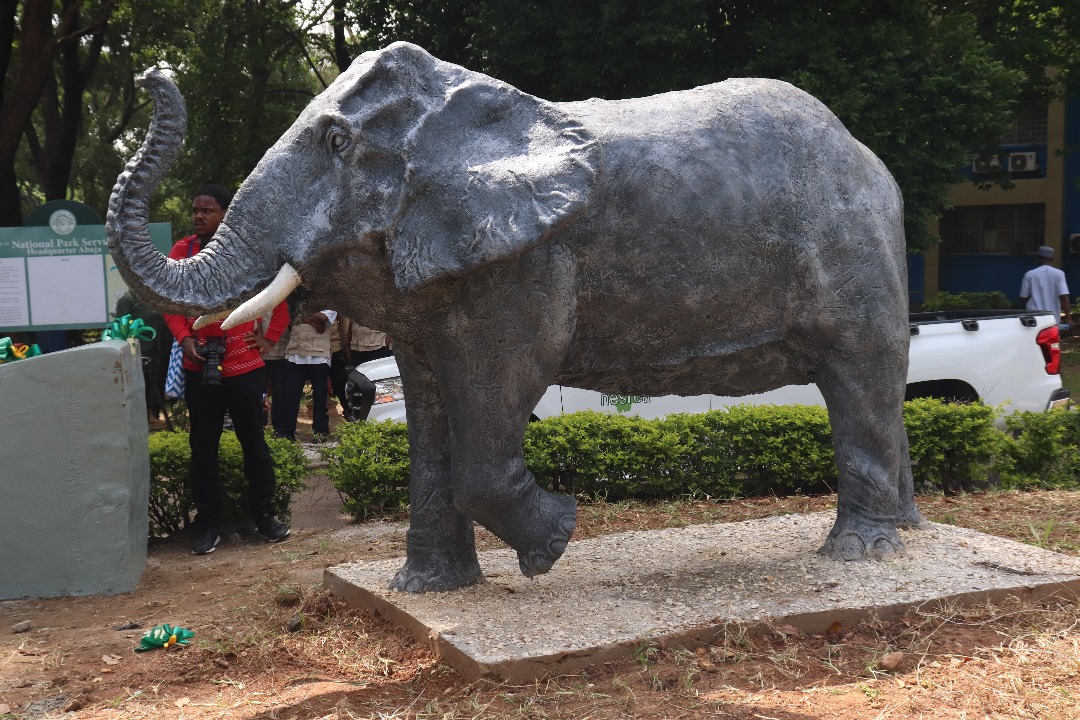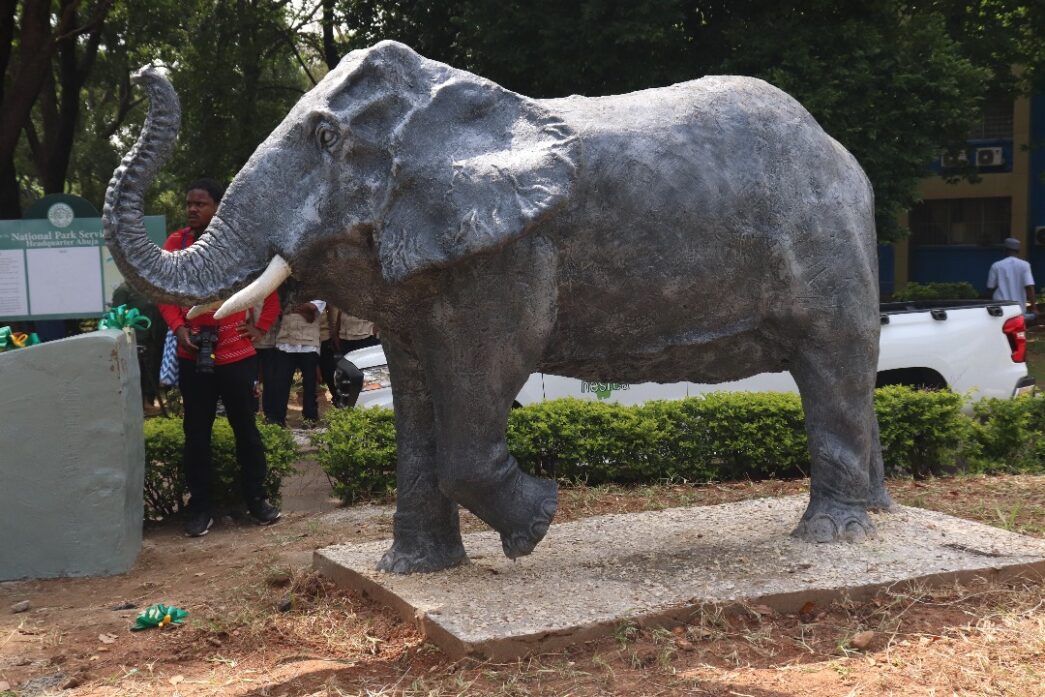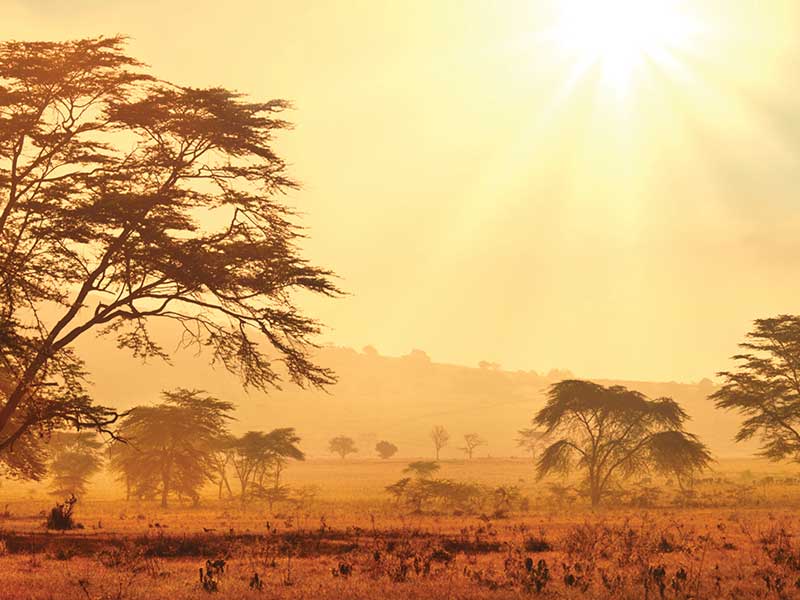The elephant statue is sculptured from seized trafficked animals' scales.
The federal government has unveiled an elephant sculpture created from a confiscated wildlife stockpile in Abuja.
Speaking during the unveiling of the sculpture in Abuja on Wednesday, Ishaq Salako, minister of state for environment, said the monument was erected with about 2.5 tonnes of confiscated elephant tusks and ivories.
Salako said the sculpture symbolises the government’s zero tolerance for wildlife trafficking in the country.
The minister emphasised the need for the protection of the country’s wildlife to maintain ecological balance.
Advertisement
He reiterated the ministry’s commitment to harnessing Nigeria’s natural resources for sustainable development.
“About seven months ago, precisely on 9th January 2024, Nigeria, in the determination to protect her dwindling elephant population, discourage illegal wildlife trade, and deter illicit traffickers from using the country as a transit route, took a giant step by publicly destroying 2.5 tonnes of confiscated elephant tusks and ivory,” Salako said.
“Let me also use this opportunity to call every Nigerian to support our fight against illegal wildlife trafficking by providing intelligence, discouraging animal poaching, and refusing to use products that are not ethically sourced, including from online sources.
Advertisement
“We need wildlife for our survival, wellbeing, and prosperity as they maintain ecological balance, provide critical ecosystem systems, maintain the food chain, and keep us connected to nature.
“The federal ministry of environment will continue to do everything possible to ensure that we play our part in harnessing our natural resources for sustainable development.”
Also speaking, Innocent Barikor, director-general of the National Environmental Standards and Regulations Enforcement Agency (NESREA), described the move as a “historic one”.
Barikor urged all stakeholders to remain resolute in the fight against illegal wildlife trade (IWT) in the country.
Advertisement
“It may interest these esteemed stakeholders that our disposal exercise, which was carried out early this year, was strictly guided by the provisions of the international environmental convention,” Barikor said.
“Also, the resolutions by the Conference of Parties (CoP) in its Conf. 9.10 (Rev. Cop15) and Conf. 10.7 (Rev. Cop15) reviewed at CoP17 that allow member countries to dispose of their confiscated live, dead, derivatives, and accumulated specimens using the best applicable method(s) in lieu of the country’s peculiarity.”
Add a comment










